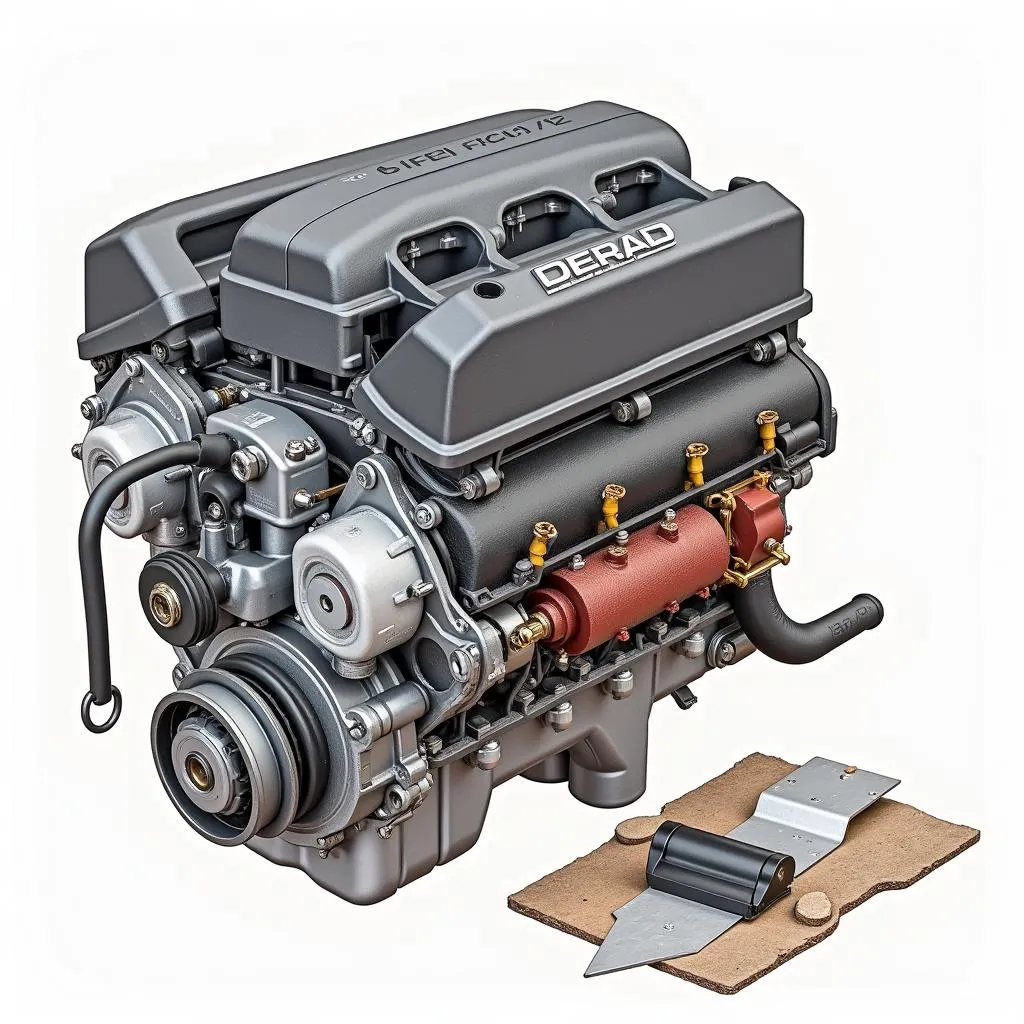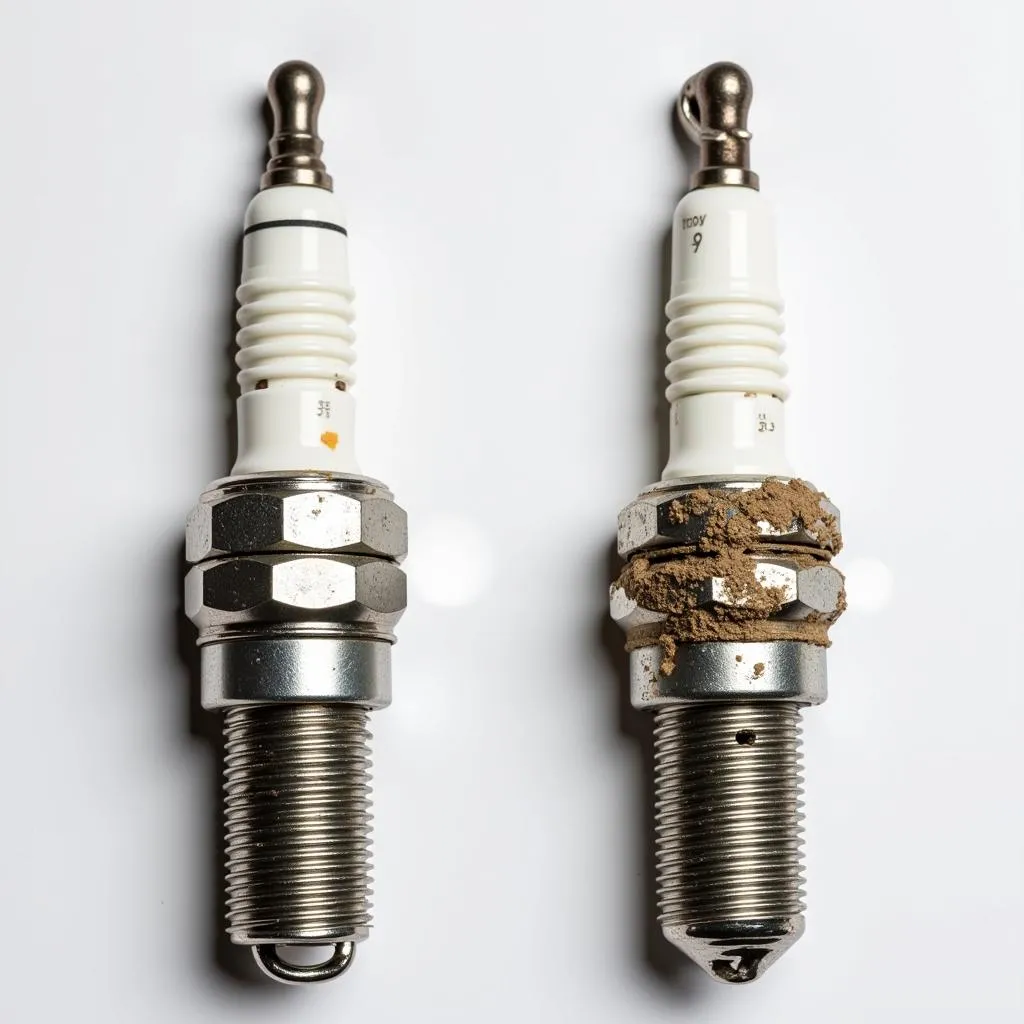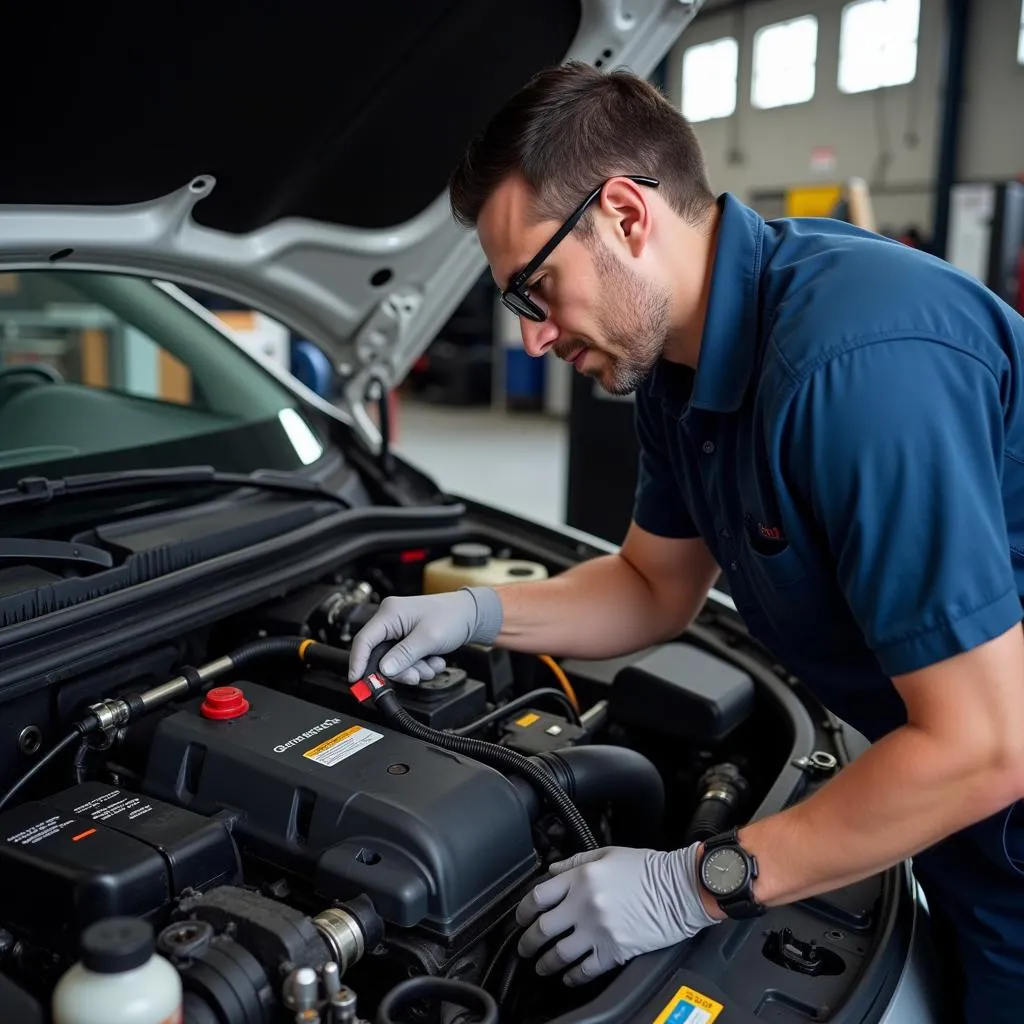Have you ever turned the key in your car’s ignition only to be met with a disconcerting shudder? Experiencing car shaking when start engine can be alarming, but it’s often a symptom of a solvable issue. This comprehensive guide delves into the common causes behind this problem, ranging from minor hiccups to more serious mechanical concerns. We’ll equip you with the knowledge to diagnose the likely culprit and explore potential solutions to get your car running smoothly again.
Common Culprits Behind Engine Shake
 Engine Mount Failure Illustration
Engine Mount Failure Illustration
1. Worn Engine Mounts: Engine mounts act as shock absorbers between your engine and the car’s frame, minimizing vibrations. Over time, these mounts can wear down, causing excessive engine movement and shaking, particularly noticeable during startup.
2. Spark Plug Problems: Faulty spark plugs can disrupt the combustion process, leading to misfires. When an engine misfires, it can cause noticeable shaking, especially during the initial moments of starting.
 Spark Plug Comparison: Worn vs New
Spark Plug Comparison: Worn vs New
3. Vacuum Leaks: Your engine relies on a precise balance of air and fuel for optimal performance. Vacuum leaks disrupt this balance, leading to rough idling and potential shaking upon startup.
4. Fuel System Issues: From clogged fuel filters to malfunctioning fuel injectors, problems within the fuel system can starve your engine of the fuel it needs for a smooth start, resulting in shaking or sputtering.
5. Sensor Malfunctions: Modern vehicles rely on various sensors to manage engine performance. A malfunctioning sensor, such as the mass airflow sensor or throttle position sensor, can disrupt this delicate balance, contributing to shaking during startup.
Diagnosing the Root Cause
Accurately identifying the source of your car’s shaking requires a systematic approach. Here are some key steps to consider:
1. Observe the Shaking:
- When does it happen? Is it only when starting, or does it persist while driving?
- How intense is it? Is it a slight tremor or a violent shaking?
- Are there any accompanying symptoms? Look out for unusual noises, warning lights on the dashboard, or changes in engine performance.
2. Check for Obvious Signs:
- Inspect Engine Mounts: Visually examine the engine mounts for cracks, tears, or excessive movement.
- Listen for Vacuum Leaks: A hissing sound coming from the engine bay could indicate a vacuum leak.
3. Utilize Diagnostic Tools:
- OBD2 Scanners: These tools can read error codes stored in your car’s computer, providing valuable clues about potential sensor or system malfunctions. For in-depth diagnostics and advanced functionalities, consider investing in professional-grade automotive scanners and programmers, OBD2 bidirectional scanner programmers, or OBD2 scanner and key programmers.
Finding the Right Solution
Once you’ve pinpointed the likely cause, addressing the issue becomes crucial. Here’s a breakdown of potential solutions:
1. Engine Mount Replacement: Worn or damaged engine mounts necessitate replacement to restore stability and reduce vibrations.
2. Spark Plug Maintenance: Regularly inspect and replace spark plugs according to your vehicle’s maintenance schedule.
3. Vacuum Leak Repair: Identifying and repairing vacuum leaks often involves inspecting hoses and connections, and replacing any damaged components.
4. Fuel System Cleaning: Cleaning the fuel system, including replacing the fuel filter, can improve fuel delivery and combustion.
5. Sensor Replacement: Malfunctioning sensors often require replacement to ensure accurate readings and proper engine management.
 Experienced Mechanic Inspecting Car Engine
Experienced Mechanic Inspecting Car Engine
When to Seek Professional Help
While some causes of engine shaking can be addressed with basic maintenance, more complex issues often require the expertise of a qualified mechanic. Don’t hesitate to seek professional help if:
- You’re uncomfortable performing repairs yourself.
- The shaking is severe or accompanied by other worrying symptoms.
- You’ve tried basic troubleshooting steps without success.
Conclusion
Experiencing car shaking when starting the engine can be concerning, but understanding the common causes and solutions empowers you to address the issue effectively. By following the steps outlined in this guide, you can diagnose the likely culprit and explore appropriate remedies. Remember, regular maintenance and timely repairs are key to keeping your car running smoothly and preventing future issues.